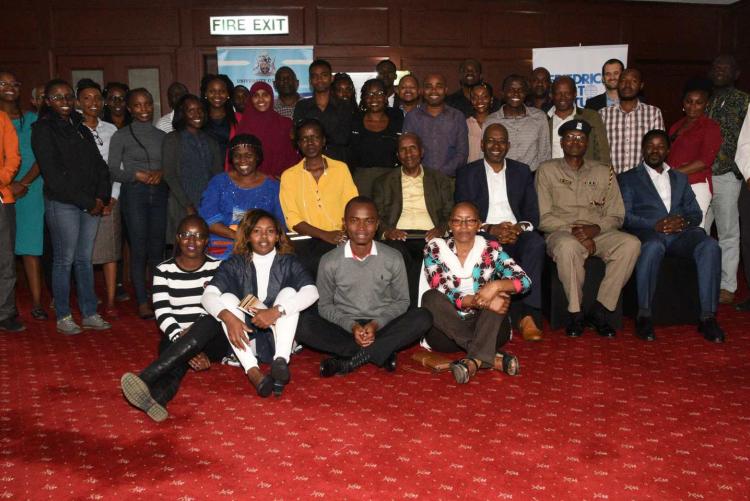The Kenyan transport sector has been chaotic, with matatus and buses operating with minimum regard to road safety. The Institute for Development Studies( IDS), together with other partners, endeavours to develop a Socially Just Public Transport (SJPT)model that solves the ills of the modern-day chaotic transport system.Towards this end, The Kenya Transport Research Network (KTRN) based at IDS and the Socially Just Public Transport Working Group - facilitated by the Friedrich-Ebert-Stiftung-Kenya, (FES Kenya) - hosted an informal discussion on “Promoting a Socially Just Public Transport and the Role of Actors in Kenya.” The meeting took place on 28th November 2019 at the Nairobi Safari Club.
During the occasion, IDS Associate Director, Dr. Paul Kamau observed that transport contributes to the development and we cannot talk of development without considering the transport system. He noted that Kenyans spend too much time on the road and hence waste considerable time that that would have been utilized in enhancing the economic development of the country. He underscored the need to have a workable transport solution that can be sold to the policymakers.
Keynote Speaker, Dr Anne Kamau, unpacked a Socially Just Public Transport Model in Kenya. She observed that such a transport system should be available, accessible and promote equality. She said the system should be fairly distributed, and promote participation and user rights. The SJPT has been supported by TAWU, KARA, ITDP Global Alliance of NGOs for Road Safety, Kenyatta University, Nairobi City County and Usalama Watch. The participants decried the inhumane treatment of public transport users. It was observed that matatus in most cases violate human rights and freedoms. There is no privacy, dignity, and freedom of choice. The matatus, it was observed, have little tolerance to women, the elderly, children and persons living with disabilities.
According to the experts, the design of a socially just transport system should incorporate user-friendliness, it should be conveniently located around human settlements and it should be networked and linked to social spaces like houses, schools, health facilities, farming areas, and entertainment places. It should be usable to mothers, children, the elderly and persons living with disabilities. Due to congestion on the roads, it was suggested that Nairobians should embrace bicycle circling. Such a transport model should also integrate motorcycles and handcarts.
Mr. Henrik Maihack, Friedrich Ebert Stiftung Resident Representative, observed that the public transport system in most cities works for rich people who own cars. Many cities are not user-friendly for those who don’t own cars. He said Friedrich Ebert Stiftung is working with academia, civil society, Nairobi County Government, and Kenya Police to ensure citizens enjoy a socially just transport system that is comfortable to all users.

